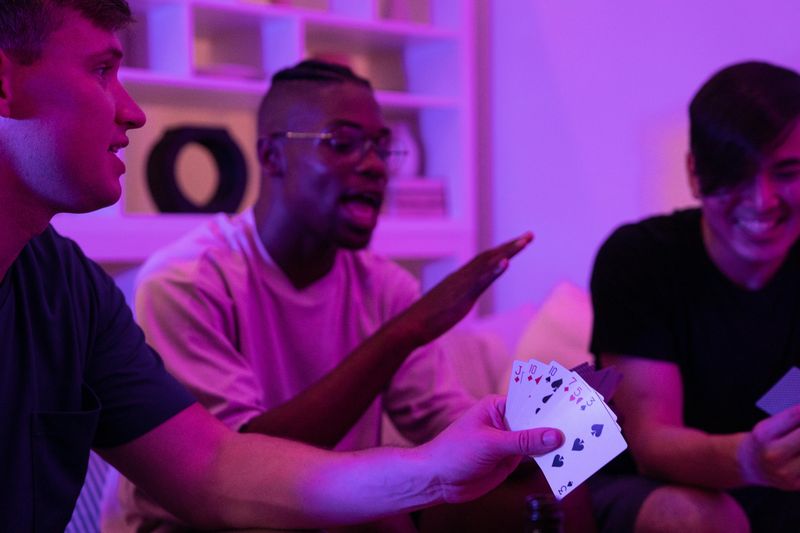10 Subtle Signs Someone Secretly Resents You

Have you ever felt like someone in your life doesn’t quite seem genuine around you? Maybe their words sound friendly, but something feels off. Resentment can hide beneath polite smiles and casual conversations, making it hard to spot. Recognizing these hidden signals can help you understand your relationships better and decide how to move forward with clarity and confidence.
1. Backhanded Compliments

Words can be tricky weapons when wrapped in what sounds like praise. Someone might tell you how lucky you are that everything falls into place for you, as if your success has nothing to do with hard work or talent.
These comments sting because they dismiss your efforts while pretending to celebrate you. The speaker hides jealousy or bitterness behind a smile, making it difficult to call them out without seeming oversensitive.
Pay attention when compliments feel hollow or come with a twist. Genuine praise lifts you up without any strings attached, while backhanded remarks leave you feeling confused or slightly insulted, even when you can’t quite explain why.
2. Forced or Faint Praise

Achieving something important should bring warm congratulations from people who care about you. But when someone resents you, their response feels like they’re checking a box rather than celebrating your win.
Their acknowledgment comes out flat, brief, and lacking any real excitement. You can hear it in their tone—the words are there, but the enthusiasm isn’t. It’s as if they’re forcing themselves to say something nice because social rules require it.
Real supporters light up when you succeed because your happiness genuinely matters to them. When praise feels mechanical or rushed, it reveals that the person would rather not acknowledge your accomplishment at all.
3. Subtle Undermining

Humor becomes a shield for cruelty when someone uses jokes to chip away at your confidence. They might make comments that sound playful on the surface but actually make you look foolish or incompetent in front of others.
When you react, they quickly defend themselves by saying they were just kidding or being honest. This puts you in an awkward position where standing up for yourself makes you seem like you can’t take a joke.
Trust your gut when something feels mean-spirited, even if it’s disguised as teasing. Real friends don’t need to tear you down to get a laugh, and honesty doesn’t require making you feel small.
4. Passive-Aggressive Behavior

Direct communication disappears when resentment takes over, replaced by sighs, sarcastic remarks, and deliberate delays. Instead of telling you what’s bothering them, they express frustration through subtle acts of resistance.
Maybe they agree to help but then drag their feet or do a poor job on purpose. Perhaps they respond to your questions with eye rolls or short, snippy answers that drip with irritation.
This behavior creates tension because the real issue never gets addressed openly. You’re left guessing what you did wrong while they continue to punish you indirectly. Healthy relationships require honest conversations, not games of hidden frustration that leave everyone feeling worse.
5. Lack of Genuine Support

When someone resents you, they become mysteriously unavailable during your important moments. They skip your celebrations, ignore your good news, or brush off your struggles as if they don’t matter.
Their absence speaks louder than any excuse they might offer. You notice they never seem to have time for you, yet they’re always available for others or their own interests.
Support means showing up, not just with your presence but with genuine care and attention. If someone consistently fails to be there when you need them or can’t muster enthusiasm for your victories, their heart isn’t in the friendship anymore, if it ever was.
6. Icy Politeness

Coldness can hide behind perfectly correct manners when someone resents you but doesn’t want to show it openly. Their words are polite, their tone is civil, but there’s zero warmth behind anything they say.
Conversations feel strangely formal, like you’re talking to a distant acquaintance rather than someone you’ve known well. They maintain just enough friendliness to avoid conflict but never let their guard down or show genuine emotion.
This frozen courtesy creates an uncomfortable distance that’s hard to bridge. You can sense the wall between you, even though they haven’t said anything obviously rude. Real connection requires warmth, vulnerability, and authenticity—all things that disappear when resentment takes hold.
7. One-Sided Conversations

Balance disappears from conversations when resentment enters the picture. You find yourself doing all the asking, all the sharing, while they offer little in return about their own life or yours.
When they do ask about you, the question feels like an obligation they’re rushing through to get back to safer topics. They don’t follow up, don’t remember what you told them last time, and show no real curiosity about your experiences.
Genuine interest flows naturally in healthy relationships, with both people eager to understand each other’s worlds. If every conversation feels like you’re pulling teeth or talking to a wall, it’s a clear sign they’ve emotionally checked out.
8. Disappearing When You Succeed

Success should bring your friends closer, but resentment pushes them away instead. Right when you’re riding high on an achievement, they suddenly become hard to reach or go strangely quiet.
Your messages get shorter responses or no responses at all. They stop liking your posts, avoid mentioning your success, and find reasons not to be around when you’re celebrating.
This pattern reveals that your victories trigger their insecurities rather than their joy. True friends want to bask in your glow with you, not hide from it. When someone consistently vanishes during your best moments, their envy is speaking louder than their loyalty ever could.
9. Subtle Eye Rolls or Smirks

Bodies tell the truth that words try to hide, and facial expressions are especially revealing. Watch for tiny movements like eye rolls, smirks, or tight-lipped smiles that flash across someone’s face when you speak.
These microexpressions happen quickly, sometimes so fast you almost miss them, but they reveal genuine feelings of contempt or dismissal. The person’s mouth might say they agree with you, but their face tells a completely different story.
Our brains are wired to pick up on these subtle signals, which is why you might feel uncomfortable even when you can’t pinpoint why. Trust what you observe in someone’s expressions—they’re often more honest than their carefully chosen words.
10. Competing Instead of Connecting

Friendship turns into a contest when resentment takes root, with every conversation becoming a subtle competition. They can’t simply listen to your news without immediately sharing how they did something similar but better.
Normal exchanges about work, relationships, or achievements get hijacked into comparisons of success, intelligence, or status. They keep score in their head, measuring themselves against you constantly instead of just enjoying your company.
Real connections happen when people feel secure enough to celebrate each other without feeling threatened. When someone treats your relationship like a race they need to win, it shows they see you as a rival rather than a friend, which poisons any chance of genuine closeness.

Comments
Loading…